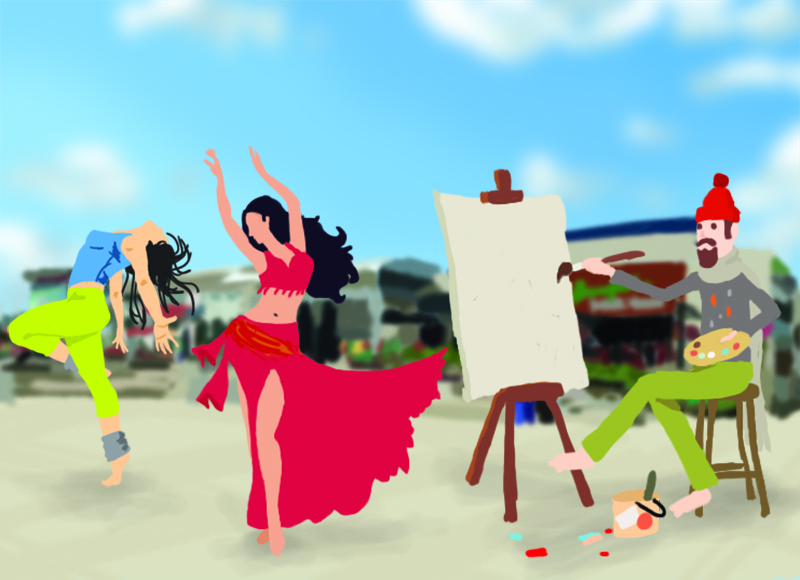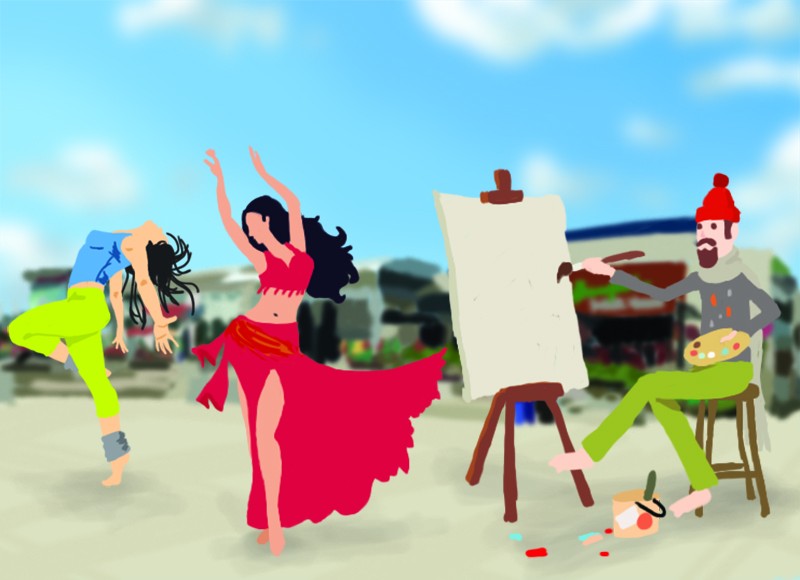Waterloo is facing an identity crisis

Waterloo’s co-existence as a university, family, multicultural and technology hub makes it difficult to distill the city’s cultural identity to singularity.

“Waterloo’s culture community is fragmented,” reads the Waterloo Culture Plan: A Catalyst For Culture 2014-2024, a comprehensive report developed by the City of Waterloo.
The culture plan outlines a decade’s worth of initiatives aimed at shaping the city’s growing artistic and cultural identity. But it seems Waterloo is facing an identity crisis.
In consideration of Waterloo’s co-existence as a university, family, multicultural and technology hub, it remains difficult to distill the city’s cultural identity to singularity. While this may signal a diverse and bustling culture, it also indicates missed opportunities for rich cross-collaboration and potential feelings of detachment for some community stakeholders.
Astero Kalogeropoulos, the manager of arts, culture, festivals and events on the City of Waterloo’s economic development team, maintained that increased accessibility is a “top priority.”
The team proposed $10,000 of its $607,000 economic development budget to arts and culture programming, such as workshops and public events. These events will serve to ensure that all community stakeholders have the opportunity to enrich themselves in the city’s arts and culture, no matter their cultural background or socioeconomic status.
“We don’t do donors, all of our efforts are taxpayer funded,” said Kalogeropoulos.
“That’s why we feel it’s so important to increase that access. These are programs and services that are really important.”
To attract community members to the city’s core, the team launched Final Fridays, a monthly event hosted in uptown Waterloo that features live music, cuisine and art exhibits. Whilst enriching community members in culture, the initiative also serves to assist local businesses suffering from increased light rail transit construction in the area.
While many initiatives are hosted in the city’s core to highlight uptown Waterloo as a “cultural hub,” the economic development team wants to emphasize that culture exists and thrives outside of the “mom and pop shops” of uptown.
The We Are Waterloo Portrait Project, a year-long initiative in conjunction with the Waterloo sesquicentennial, aims to highlight the diverse community and talent in the city. The project differentiates itself from others by hosting events in a multitude of locations around the city to ensure a diversity of identities are highlighted.
As Kalogeropoulos put it, the city must “bring people together and start conversations” for culture to thrive.
Waterloo is a booming tech hub, with new startups springing up consistently thanks to incubators such as the Accelerator Centre. As the City of Waterloo veers closer to an identity indebted to technology, what does this mean for the arts?
“We don’t differentiate a lot between arts and technology,” said Kalogeropoulos. “Technology couldn’t exist without the arts.”
To bridge the gap between technology, academic institutions and the growing autonomous bodies of cultural significance, the City of Waterloo plans to host a culture summit. The bi-annual summit will provide a structured opportunity for groups that wouldn’t otherwise collaborate to start a dialogue on the cultural identity and planning of the city.
Between the liberal use of economic development buzzwords such as “cultural hub” and “cultural enrichment,” it’s apparent the intention is there, but the city’s activities remain vague.
“It’s about growing the capacity of the community,” Kalogeropoulos explained. Culture in and of itself is a living and breathing organism that can’t be solely cultivated through craft workshops or sausage festivals.
It is within the volume, effort and nationalism of autonomous community members and groups to shape a community culture.
The city provides the canvas — and a few broad strokes — but it is by diverse collaboration, cohabitation and widespread inclusion that Waterloo’s artistic and cultural identity will thrive.

